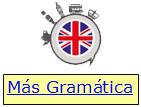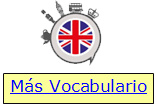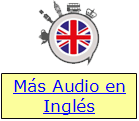|
Doubt
I doubt if we can help her. Why are you hesitating?
Doubt = dudar “I doubt if we’ll be making a special Christmas podcast
this year.”
“I doubt that I’ll be eating turkey on Christmas day.”
“Did you have doubts about the consistency of this podcast when we first
started?”
To doubt means to lack confidence in something; to disbelieve, question,
or suspect.
To hesitate means to stop or pause before making a decision or doing
something.
(dudar , vacilar)
Expressions with doubt
there is some doubt about it = sobre esto existen dudas
beyond doubt = fuera de duda
beyond all reasonable doubt = más allá de toda duda
to cast doubt on = poner en duda
to clear up sb’s doubts = sacar a algn de dudas
to have one’s doubts about sth = tener sus dudas acerca de algo
no doubt! = ¡sin duda!
to throw doubt on = poner en duda
without (a) doubt = sin duda (alguna)
to hesitate to do sth = dudar en hacer algo
“When I did a bungy jump, I hesitated before I jumped, but I had no
doubt it was safe.”
Don’t hesitate to contact us, send Reza an email.
Don’t hesitate to ask us = no vaciles en pedírnoslo, no dejes de
pedírnoslo
To hesitate before doing sth = dudar antes de hacer algo
What do you hesitate before doing?
Connected Speech
Why do native English speakers connect their speech? We try to say the
most we can in the shortest possible time.
English is a stress-timed language. Spanish is a syllable-timed language.
1 – 2 – 3 – 4
1 and 2 and 3 and 4
1 and a 2 and a 3 and a 4
1 and then a 2 and then a 3 and then a 4
CATS CHASE MICE
the CATS CHASE MICE
the CATS CHASE the MICE
the cats will CHASE the MICE
the CATS will have CHASED the MICE
“here and there” Do you pronounce the ‘r’ at the end of ‘here’
“more examples”
“A doctor or a lawyer”
“We never ever thought we’d love podcasting”
“The biscuits are in the cupboard”
“This is a better episode than last week’s.”
Does the first word have to end in an ‘r’ sound, and the second begin
with a vowel sound (like better and episode)?
law and order (‘r’ sound)
Pasta and cheese (‘r’ sound)
Go away (‘w’ sound)
No, I can’t (‘w’ sound)
She isn’t there (‘y’ sound)
Tea and biscuits (‘y’ sound)
Consonant + vowel sound (link the sounds together when a consonant is
followed by a vowel)
I need it = I needit
Say a word = saya word
Read a text = reada text
Consonant + consonant (if the consonant is the same sound, just
pronounce it once)
Big girl = bigirl
Best teacher = besteacher
Good day = gooday (or G’day if you’re Australian!)
Take the fast train = fastrain
I needto stopeating chocolate = I need to stop eating chocolate.
Playa songon ya violin = Play a song on your violin.
Are ya gonna sitdown or standup? = Are you going to sit down or stand
up?
Other examples – dictation
Wacha gonna do? = What are you going to do?
I’ve gotta geta lotavit = I’ve got to get a lot of it
She can’tavarrivedearly = She can’t have arrived early
Sendusanemail = send us an email
I’ve never bininafrica = I’ve never been in Africa (‘Nicola’s been in
Benin, Africa’)
Wadaya do? = What do you do? (for a living)
Pickitupoff the floor = pick it up off the floor
He mustav eatenitall = He must have eaten it all
A similar thing happens in Spanish also – cortado, cuñado, pringado
 *Dispones
de más
PODCAST en inglés publicados en los cuadernos anteriores *Dispones
de más
PODCAST en inglés publicados en los cuadernos anteriores
a los que puedes acceder directamente así como al índice de su
contenido. |
|
|
